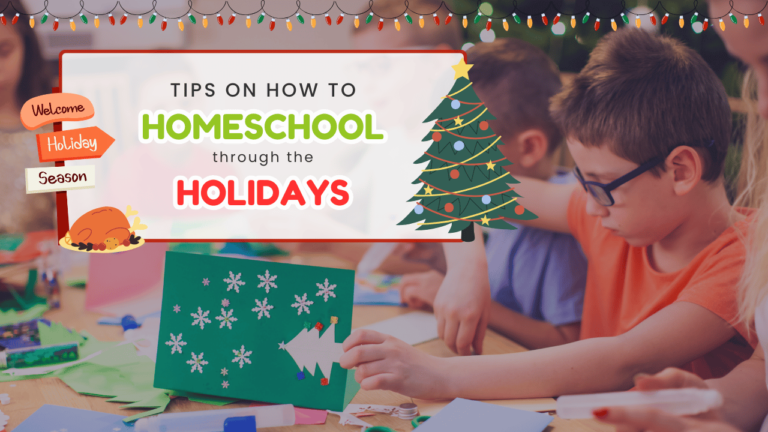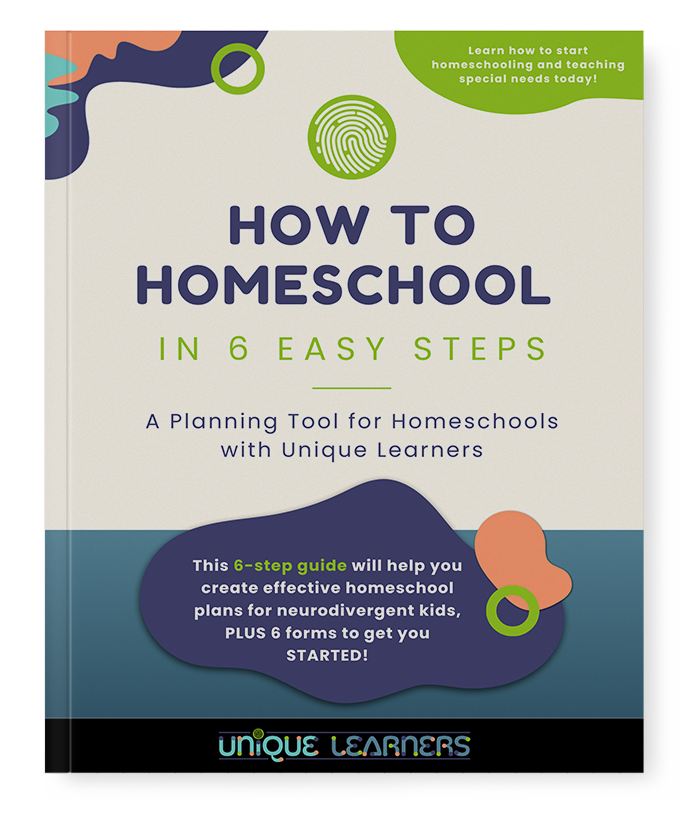Every year homeschoolers in the US face the hectic time between Thanksgiving and New Year’s. New homeschoolers often try to continue doing academics right up to each holiday and worry about how to get it all done. You can survive holiday homeschooling! Here are tips on how to homeschool through the holidays that I figured out over 20 years of homeschooling.
1. Get to a good stopping point in academic studies.
If you use a curriculum where you pace through a textbook or packets, kids need a short break occasionally. The last week of November and first week or two of December is a great time to have your children finish off the chapters or units they are working on. Then put the curriculum away for at least 2 weeks. This gives you’re a chance to focus on doing holiday celebrations with your kids and reduce the stress for everyone!
2. Teach life skills.
December can be a great time to work on teaching life skills to your kids. Have fun doing activities such as baking cookies, cleaning the house, decorating, folding laundry, and assisting with holiday meals. Life skills involves important learning. First, it helps your children learn some of the skills of running a household. They also build executive function skills, like organizing, measuring, planning, problem solving, managing time, conflict resolution, and emotional regulation. When you are focused on teaching life skills, the routine of academics in January may even be a welcome relief!
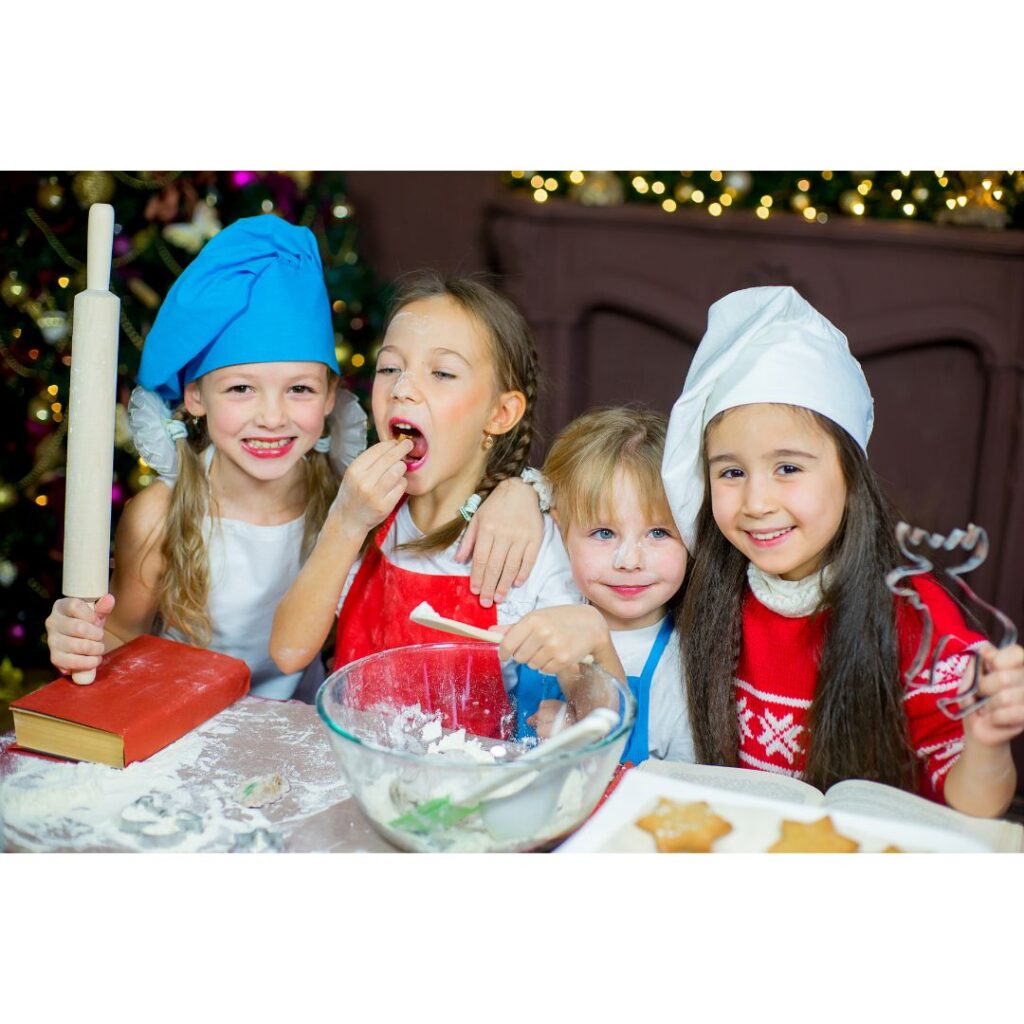
3. Play games.
Holidays are important for strengthening family relationships. Many regular games that are marketed just for fun also involve important skills used in academics. Being together playing games is a fun way to share experiences that involve cooperation and laughter.
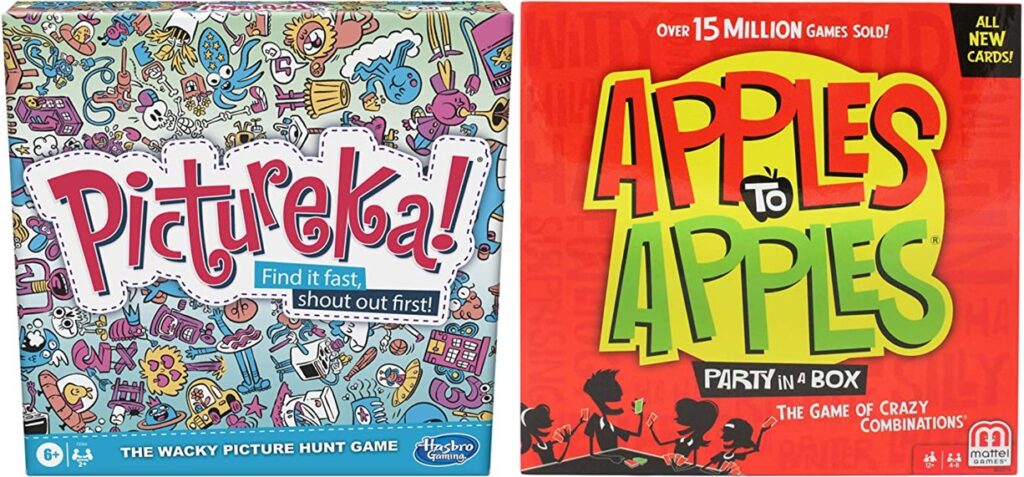
Here are some of my favorites:
- Apples to Apples
- Blokus
- Boggle
- Candyland
- Checkers
- Chess
- Clue
- Connect 4
- Cribbage
- Don’t Break the Ice
- Goblet
- Guess Who?
- Hi Ho Cherry-O
- I Spy Dig In
- Monopoly (or variations)
- Operation
- Pandemic
- Perfection
- Phase 10
- Pictionary
- Pictureka
- Quirkle
- Sequence
- Settlers of Catan
- Sorry
- Stratego
- Ticket to Ride
- Uno
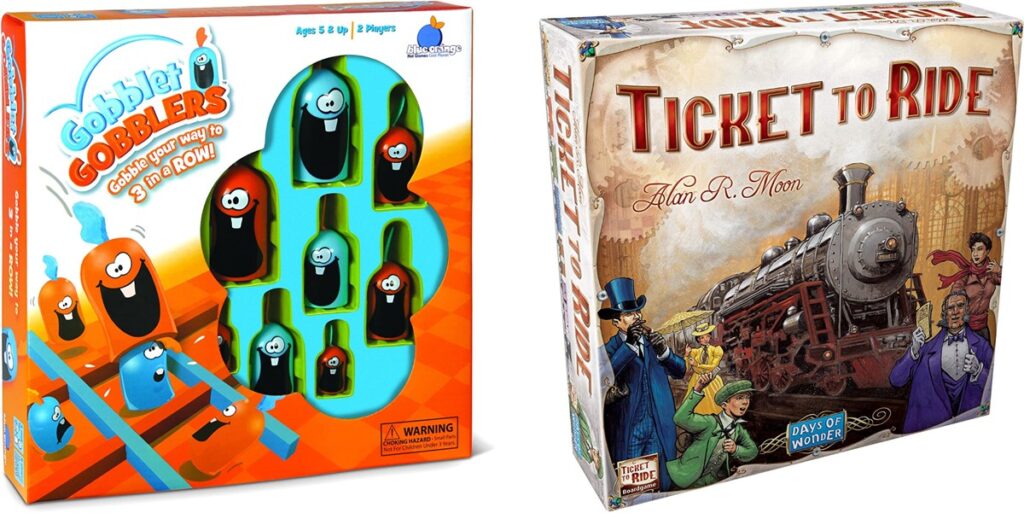
4. Do standardized assessments.
If your state’s homeschool laws require yearly standardized testing, December is a great month to do them. We lived in a state that required yearly testing. We changed our regular routine during December for assessments and holiday activities. We also homeschooled year-round, so I would take off August for deep cleaning and planning for the new school year. Then we would take individual days for a long weekend or for other holidays throughout the year. They still felt like breaks!
If you like the idea of using a week after Thanksgiving to do assessments, be aware that some norm-referenced tests are only available at certain times of the year.
Others, like the Stanford 10 are available year-round. Check you local homeschool groups to see if a certified test administrator is available or if the test you prefer is able to be administered yourself.
Since several of my kids had dyslexia or other special needs, I preferred to use the Woodcock-Johnson IV, which is an individually administered standardized test. The stress is lower because there are no bubbles to fill in for kids with visual spatial needs. The interaction between assessor and student can be reassuring to a kid with anxiety. Short breaks between subtests can help kids with attention issues to persist. The Woodcock-Johnson IV must be administered by an advanced professional trained to administer edpsych batteries of tests. Contact Sue if you need help doing an assessment with your kiddo.
Another test similar to the Woodcock-Johnson is the WIAT. Again, you will need to find an advanced professional to administer the test; however, the results may be more useful in planning for curriculum and instruction for unique learners who require specialized materials.
5. Learn about holidays.
Regardless of your homeschool approach, December is a great time to do a unit study on one or more holidays – even if it is from a different time of year. Check out library books at the level for your children. Look up information on the internet. Make a lapbook or projects. Learn some songs. Make decorations and food for the holiday(s) you study. If you have more than one child, have each one pick a holiday to research and make a mini holiday parade float using shoe boxes. You can get free shoe boxes from a local shoe store; just ask ahead if they can save them and when you should pick them up. Kids can make their own paper figures or look for Safari Ltd Toob sets. Below are the Powhatan Indian and World War II D-Day sets!

6. Do a family read-aloud for the different holidays.
You can find holiday stories at your library, thrift stores, ebooks, or order one. Christmas and Hanukkah stories about at this time of year. Here are a few titles that are kid favorites:
Thanksgiving Stories
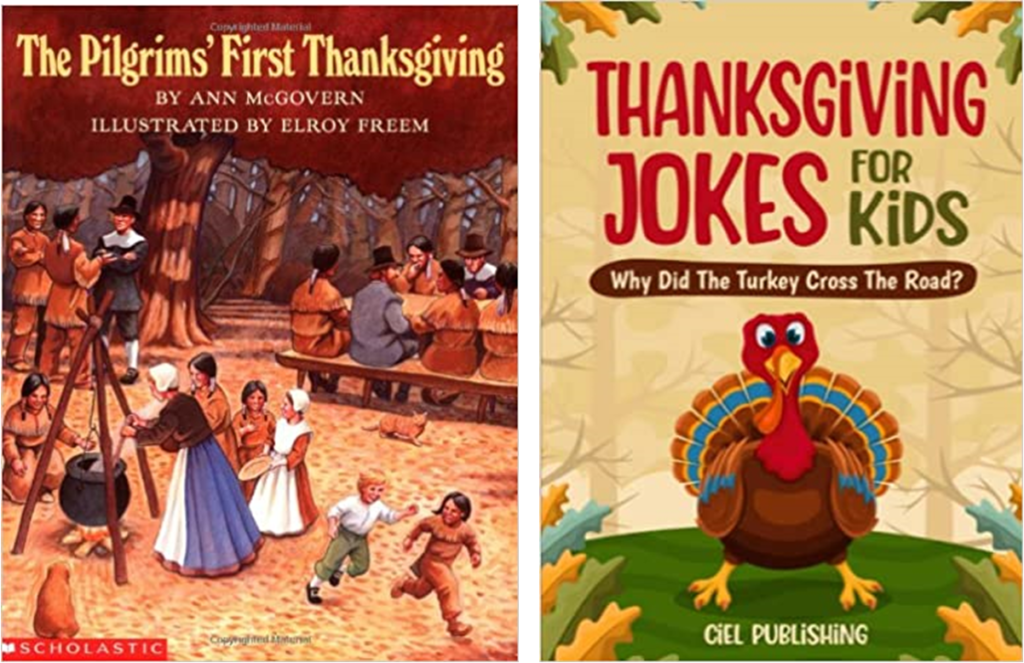
- Charlie Bumpers and the Thankgiving Turkey
- Cranberry Thanksgiving
- Of Plimouth Plantation in Modern English, William Bradford
- Squanto’s Journey
- The First Thanksgiving (Step into Reading)
- The First Thanksgiving Feast
- The Story of the Pilgrims
- The Very First Thanksgiving Day
- Zack and the Turkey Attack
Hanukkah Stories
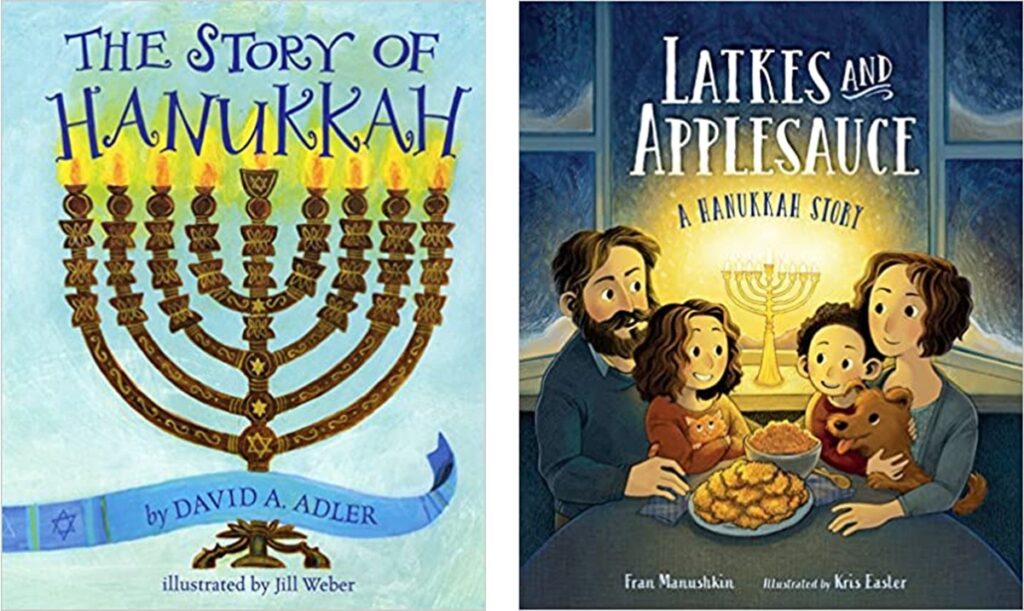
- Hershel and the Hanukkah Goblins
- In the Month of Kislev
- Latkes and Applesauce
- Maccabee!
- The Golden Dreidel
- The Stone Lamp
- The Story of Hanukkah
Christmas Stories
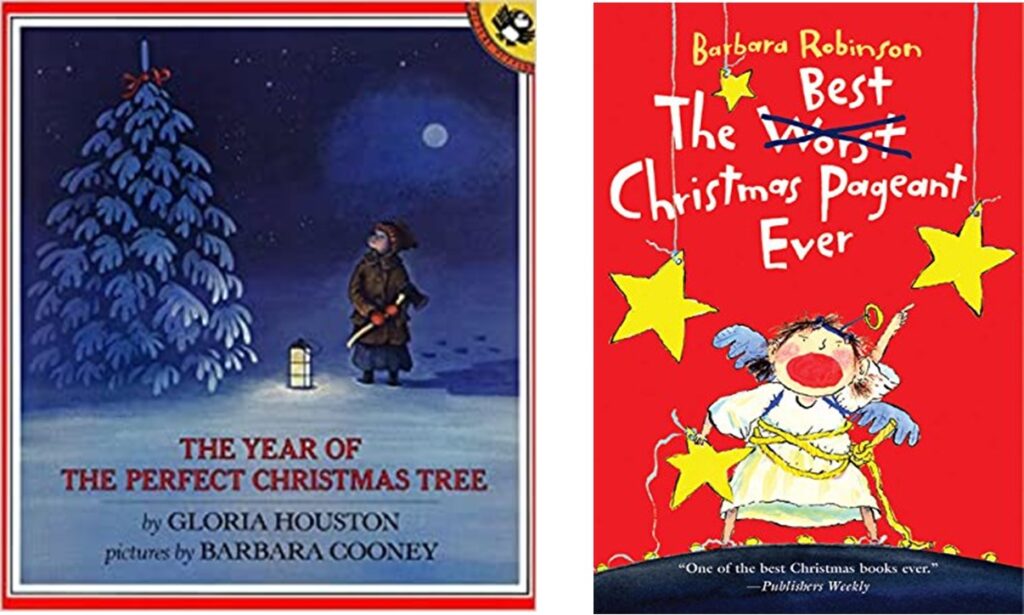
- The Best Christmas Pageant Ever
- The Polar Express
- The Night Before Christmas
- The Birds’ Christmas Carol
- Holly & Ivy
- Rudolf the Red-Nosed Reindeer
- The Little Match Girl
- A Christmas Carol, by Charles Dickens
- The Nutcracker
- The Year of the Perfect Christmas Tree, by Barbara Cooney
- The House Without a Christmas Tree
- The Gift of the Magi, O. Henry
Of course, for those of us who are Christian believers, the best Christmas story is a retelling of the events of the Nativity when Immanuel (God with Us) was born. You can read about the prophecies and birth of Jesus in the Bible. Matthew chapters 1 and 2 tell the account of Messiah, the King of Kings. Luke chapters 1 and 2 tell the account of the human lowliness of the God-Man. Through both of these passages, we can see that God showed His love toward us to send Jesus, the Savior of the world.
Kwanzaa
- Seven Spools of Thread
- The Seven Days of Kwanzaa
- Together for Kwanzaa
- Celebrate Kwanzaa
New Year’s Stories – Mainly stories about starting again
- Squirrel’s New Years’ Resolution
- Holes
- Walk Two Moons
- Esperanza Rising
- Bud, Not Buddy
- City of Ember
- The Family Under the Bridge
- The Secret Garden
- The Little Princess
- The Hundred Dresses
- My Side of the Mountain
7. Do a child-centered unit study for the holidays.
December is a great time to do a unit study about any topic your child wants to learn more about. Unit studies often include activities from any subject. You could even be homeschool travelers during December and visit interesting historical sites around your state.
For example, if you want to learn more about cranberries, you could look up information on various subtopics, like: how cranberries are grown, how they are harvested, foods you can make with cranberries, the nutritional value of cranberries, how to make natural dyes, what animals may eat cranberries, how to count cranberries, and more!
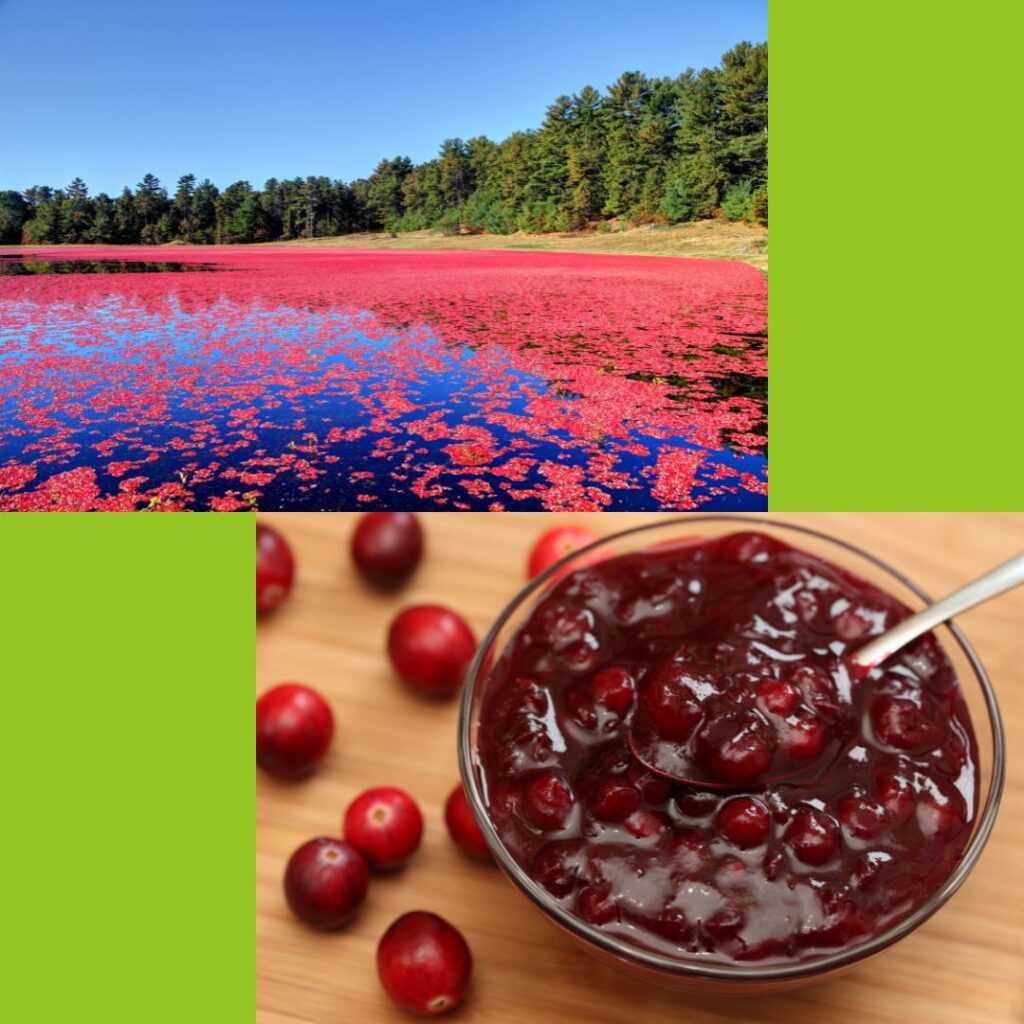
To create a hands-on unit study, you will want to include activities that involve reading, writing, math, spelling, history, and science. Once you have found information with your child, have your kids collect 10 vocabulary words that can also be practiced for spelling. Make cranberry dye (science). Use your homemade cranberry dye to practice writing spelling words. Write a story with a cranberry bog as the setting. Or write a paragraph about growing and harvesting cranberries. Watch videos about processing cranberries for market. Make a cranberry salad or cranberry jelly. Practice counting and weighing cranberries. Make a poster of any information you found interesting.
8. Go on field trips or outings – tons of fun opportunities for the holidays!
December is nearly always filled with various special community events that can make great family activities. You can also do outdoor activities regardless of the climate in your area. Go on a winter hike, go sledding, make a snowman together, or go to the forest to bird watch.
9. Use December to plan for the next few months.
Homeschool moms get very little prep time. If you just started homeschooling in the fall with little planning time, December is a great time to evaluate what is working and what isn’t working in your homeschool. Adjust the routine if needed. Change levels if your child is struggling or needs more challenge.
10. Be flexible and celebrate the reasons for each of the holidays.
Your routine can be different than the rest of the school year, but it helps to still have a routine of some kind. If you have a kid with special needs who has melt downs from too much stimulation, you may want to keep your routine similar. If you have a special outing, let your child know ahead of time. Give reminders as the time gets closer.
Keep your own emotions in check so that your child knows that everything is safe. Most of all, be ready to be flexible to meet your child’s needs. If necessary, have a back-up plan. Meltdowns are not fun for anyone in the family!

If you were going to go ice skating, but your kiddo couldn’t deal with the cold, the skates, the fear of falling, strange people, the lights, or any other sensory or emotional response, perhaps stay home, watch an ice skating movie or documentary, go for a walk in the cool air, and have hot chocolate when you get home.
11. Keep things simple.
Perhaps the most important advice for homeschooling through the holidays is to keep things simple. If holiday activities take precedence over academics, it’s ok. Your kids are learning all the time. Integrate things that aren’t too “schooly” into some of the gifts for your kids, like art kits or science kits or fun books to read.
What NOT to do during the holidays…
If all of the suggestions of what to do is hard to grab onto and follow, the most important ideas are what NOT to do. I always prefer to think in positive terms, but here are things I’ve had to remind myself at holiday time.
- Do NOT stress out.
- Do NOT try to do all the normal things AND holiday activities as well.
- Do NOT worry about being “behind.”
- Do NOT compare your homeschool to anyone else’s.
The holidays are important year markers and give us opportunities to build bonding memories with our kids. When we homeschool, it is so easy to become overwhelmed trying to do it all. If you can find one or two suggestions that work for you, your homeschool year may be a bit more relaxed. You will face the holidays with more flexibility and confidence. When Mom is calm and enjoying the homeschool life, the kids will have more fun. Kids who have meltdowns when they have sensory overload will be able to have better emotional regulation during the stimulation from holiday activities.
Grab your FREE e-book guide to revamp your homeschool for success!
Are you new to homeschooling, or just wanting a fresh start? Download our FREE “How to Homeschool in 6 Easy Steps” guide and get valuable insights from Sue’s 30+ years of experience as a special educator and homeschool mom of 4!
Want to know about new products and blogs?
Join our email newsletter to be the first to know about a new homeschool and special needs blog, and new products from our shop! Sign up for only the newsletter, or grab your FREE “How to Homeschool in 6 Easy Steps” guide and you will also be added to the newsletter!
Also, join our Facebook group!
Join our new “Homeschool Help for Special Needs” Facebook group! It is a place for homeschool moms to ask questions about homeschooling a child with special learning needs, share teaching and curriculum ideas that have worked (and those that bombed), and be real about the unique challenges of homeschooling with special needs. If you want to join us, be sure to answer the member questions to help us keep this private group secure. Join us now!
